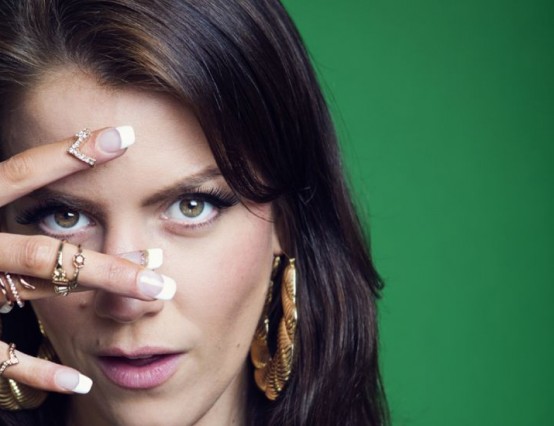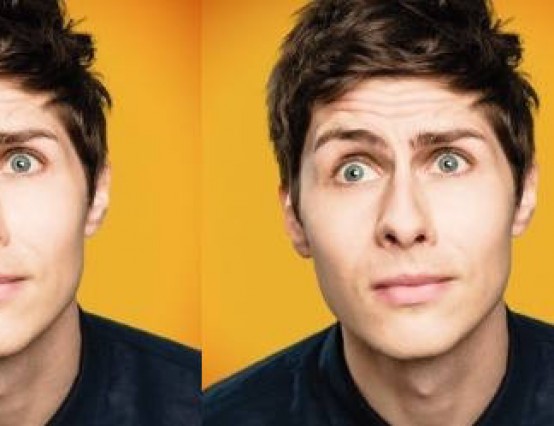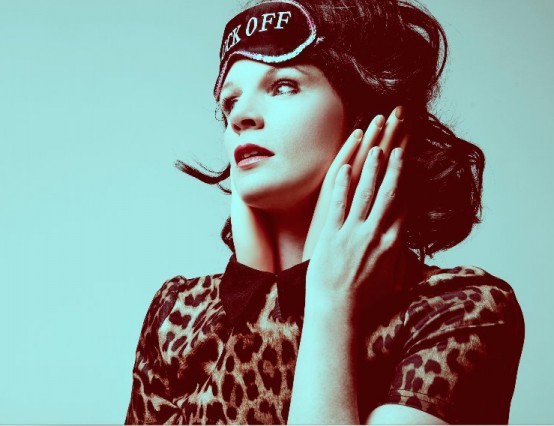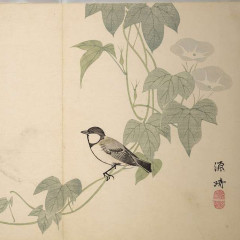When did you become involved with Bath Festivals?
I started working for the festivals in May 2013 - I had previously worked for the Cheltenham Literature Festival and the British Council literature team, planning literature events across China and East Asia, so it felt great to be back working for a festival.
What does your role at the festival entail?
I am the producer for the children's literature and literature festival. This means that I both get to work on the programme with the Artistic Director and I am also in charge of making the actual festivals happen -this includes everything from slotting events into a schedule, booking venues and staff, making sure all the technical equipment is in place and discussing specific requirements authors may have for their event. This can range from a simple request for a lectern to the question of whether an author can give out popcorn to children in the audience. I also deal with the financial side of things - drafting and monitoring budgets, setting ticket prices and projecting ticket sales. I would say that one of the best things about my job is that it's so varied and there's never a dull moment. And I obviously don't do all of this by myself - I line-manage two fantastic Festival Officers and work closely with other members of the team.
How do you begin planning for the festival?
The Artistic Directors often have a theme or a leading idea for each year, particularly for the literature festival. This will usually result in a strand of events but a lot of the programme is also influenced by what's being published around the time of the festival. We want to keep our programme current and up to date so we try and bring authors to Bath who have just published a new book. I meet publishers in London about 9 months before the festival to talk about which authors are bringing out new books and would be available to do events. We also look at what our audience particularly enjoys and make sure we cover those genres or themes in the programme.
What is your favourite part of the festival? From early planning right through to final product?
I would say that the festival is my favourite part - although it can be stressful at times, it's very satisfying to see events taking place that I have worked on for months. It's great to see our audience come out of an event and have a smile on their face or keep discussing the talk or debate with their friends and family - I like the idea that we inspire, entertain and inform people. And I love working with my team during the festival period - it creates a special bond if you have to work in a very hectic environment, from 8.30am until sometimes 10pm at night for 10 days.
How do you decide who you'd like to speak at the festival?
It's quite an organic process and lots of factors influence our decisions - ultimately, we have to be convinced that the event we're creating will be interesting, challenging, entertaining or inspiring - or all of the above! We try to mix it up - not just programme speakers and formats that our audience already love but also to introduce something new every year.
What kind of speakers have you focused on this year?
We have brought back the Bliss Lectures where well-known writers talk about what brings them bliss in their personal life. Lynne Truss likes to hear the sound of her own voice - uninterrupted - whereas John Carey loves to talk about bees. We are also focusing on the USA in the run up to their elections with a great debate, putting forward the motion "The American Dream is Dead". And last but not least, we are celebrating our 20th anniversary this year and Artistic Director Viv Groskop will look back at the best 20 books of the last 20 years.
What is the role of literature for today's youth?
I think that literature has always been very important to young people and books can have a huge influence on a young person's life. What I love is the fact that through social media, blogs and online writing in general, there is a lot more interaction between writer and reader, particularly when it comes to YA literature. I think that technology has also opened up lots of new ways for young people to become writers themselves which I think is a brilliant development and should be encouraged in every possible way. We need to make sure though that literature becomes more diverse though - I think that it's hugely important for young people to be able to recognise themselves in the stories they read and also in the people that write those stories. I'm encouraged by the fact that we are now talking about the lack of diversity in children's books for instance.
Which young writers do you have high hopes for right now?
There is a distinction to be made between young and debut writers - not all writers who have just published their first novel are still in their 20s! It can take an awfully long time for a writer to be discovered, get an agent and be published. So I think there are lots of young writers out there who haven't been discovered yet - but who will achieve great things in life and will move generations to come with their writing.
Are there any new styles coming through in literature that we should be aware of?
When I visited China whilst working for the British Council, I became aware of how much Chinese people (especially the younger generations) read on mobile phones. Not tablets but mobiles! The internet and technology has created a whole generation of writers who produce work that is solely published online. We are all familiar with e-books but this takes the concept of e-publishing a step further - and I am sure that developments such as this will have an effect on writing in general. There is so much more interaction between writer and reader when work is published and made available online and already brilliant writers such as Naomi Alderman and Kate Pullinger are exploring ways of interactive storytelling in creative writing projects.









0 Comments